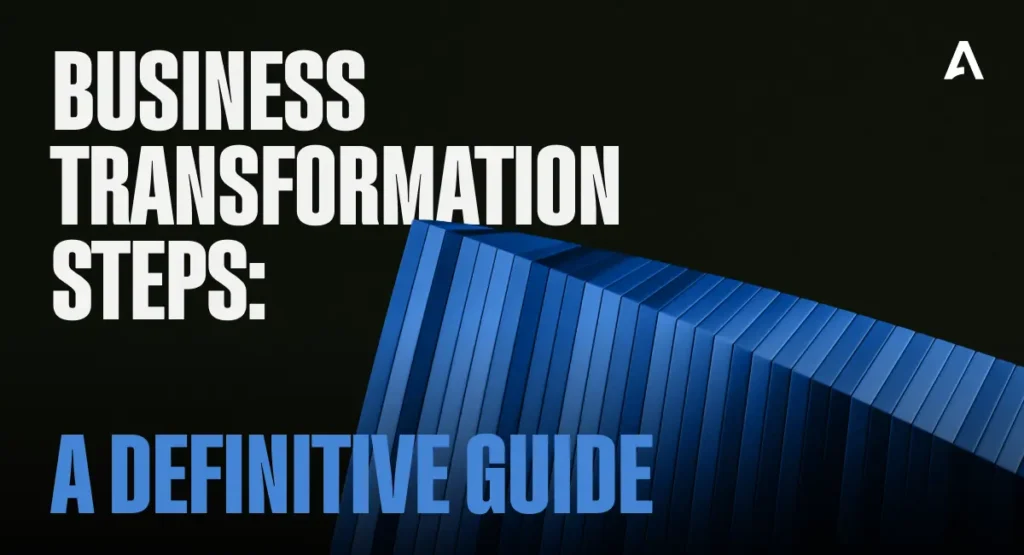
Strategic Approaches for Successful Business Transformation
Did you know that global spending on digital transformation is expected to hit $3.4 trillion by 2026? We might be biassed, but we believe it to be a powerful driver of success and operational excellence.
In today’s business environment, staying competitive and proactive to market changes is crucial. And that’s why we want to discuss business transformation strategies.
How can you help your business achieve its objectives, keep growing, and continuously adapt?
In this blog, we will delve into the essence of business transformation, the strategic planning required, and the pivotal approaches that can drive your business towards sustainable success.
Key Takeaways (Bullet Points)
- Business transformation, by definition, involves changing the operational dynamic and workflows of an organisation to improve its performance.
- Planning is a large portion of the work that goes into strategic business transformation.
- Technology plays a crucial role in giving a competitive edge to your business and improving your customer experience.
- Optimising a business’s work processes brings benefits like enhanced efficiency and reduced operational costs.
- The best business transformation strategies we recognise are digital transformation, process optimisation, cultural change, and AI integration.
Business transformation: Purpose and importance
Business transformation is like rebuilding the engine of your car to run more smoothly, operate more cost-effectively, and even add more horsepower with a new performance system. Whereas transforming businesses involves work ranging from rethinking business models to adopting a culture of innovation.
As for the importance of launching a business transformation plan, here are some benefits you can expect to see:
- Boosted efficiency and smoother operations
- Gain a competitive edge thanks to a culture of proactivity over reactivity
- Creating more room for innovation and flexibility
- Smarter use of data and data-back decision-making workflows
- Saving costs and spending smarter
Strategic planning for business transformation
Now that we’ve covered the ideas behind business transformation strategies, let’s talk about the process of planning for such a big change. Here at Alba, we see strategic planning as the blueprint of your business transformation journey.
With a strategic plan in hand, you can be sure that all aspects of your business are aligned with your transformation goals. Essentially, you get a clear roadmap that you can use to track timelines, milestones, resources, and more.
The benefits of a strategic plan are endless. So, how can you develop one? At Alba, we see 6 distinct components that a business transformation plan should have.
Components of a plan
- Your vision and goals
- Assessment of your business’s current state
- A gap analysis outlining the aspects of your business that need to change
- An action plan with detailed steps
- Resource allocation details
- A timeline with realistic deadlines for each phase of your business transformation process
After you have your plan crafted and approved, it’ll be time to decide between the key strategic approaches of business transformation and see which one will work best for your business.

Popular Blogs
- TAIL EVENTS ARE HAPPENING MORE OFTEN – WHITEPAPER BY ACTIVEVIAM & ALBA PARTNERS
- The CxO Guide to Solving Third to Nth-Party Risk Management for Operational Resilience
- Alba Partners x Gieom Partnership Annoucement
- Carbon reduction plan
- A Good Crisis – Analytics, Regulation and Resilience – Alba x Quantifi Whitepaper



